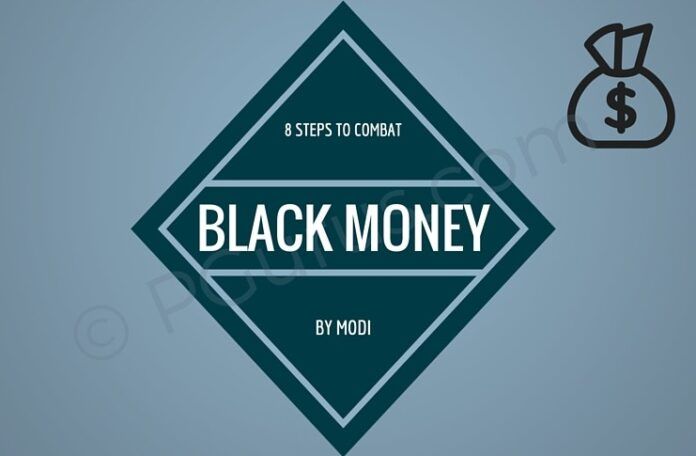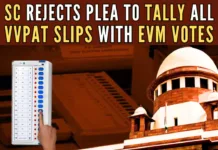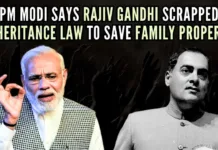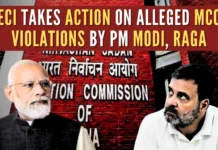
The Narendra Modi led NDA Government has undertaken a lot of measures to check the menace of foreign and domestic black money. We discuss these measures in this piece.
… problem of parallel economy and black money are largely inherited due to era of socialism between 1960-80s…
1. Constitution of SC Monitored SIT on Black Money
The very first decision of the newly elected Narendra Modi Government at its very first meeting of the Council of Ministers was to constitute a Supreme Court monitored Special Investigation Team (SIT). This clearly establishes the positive intent of the Government to deal with the menace of Black Money.
2. Renegotiation of Tax Treaties and Automatic Information Exchange Agreements with Tax Havens such as Mauritius, Switzerland, etc.
The government has renegotiated the Double Tax Avoidance Agreement (DTAA) with Mauritius to impose Capital Gains Tax if such Capital Asset is situated in India.
The government has also negotiated an Automatic Information Exchange Agreement with Switzerland.
Agreements on the above pattern are also being negotiated / renegotiated with other tax jurisdictions / tax havens.
From 2017, OECD (Organisation of Economic Cooperation and Development) countries have agreed to share information on foreign account holders with their home countries.
All these measures will make it much harder to hide cash abroad as well as round tripping of funds to India.
3. The Black Money (Undisclosed Foreign Income and Assets) and Imposition of Tax Act, 2015 for Foreign Black Money
The scheme was to bring back black money stashed abroad and its compliance window ended on 30 September, 2015. Whilst the total disclosures under this Scheme were underwhelming, the Act also has various stringent provisions for penalty and prosecution of foreign Black money holder’s unearthed during future investigation by the tax department.
4. Income Declaration Scheme 2016 for unearthing Domestic Black Money
This is an ongoing scheme for unearthing domestic black money whose compliance window is to end on 30 September, 2016. The attraction for black money holders is that it will give them immunity from prosecution. Whilst the success or failure of the Scheme lies in the future, it is publicly stated as the last and final opportunity for tax evaders to come clean in the eyes of law.
5. Penalty on Real Estate Transactions undertaken in Cash exceeding Rs.20,000/-($297).
It is widely accepted that Real Estate is the pit where Indians hoard black money from the eyes of tax officials. One of the measures undertaken by the Government which has largely been unnoticed amd unreported by Media has been the move to impose a penalty of 20% on all cash transactions exceeding Rs 20,000/- to purchase or sell a property (real estate).
6. Tax Collection at Source on Cash Sales exceeding Rs.2,00,000/- ($2970)
Another important measure to curb high value cash transactions and create an audit trail is to impose Tax Collection at Source at a nominal rate of 1% on cash purchases exceeding Rs 2 lakhs.
7. Benami Transaction (Prohibition) (Amendment) Bill
This Bill is pending in the Parliament thanks to the logjam created by the opposition. The toothless Benami Transactions (Prohibition) Bill, 1988 was rendered ineffective because Rules were never framed by the Central Government to effectively bring the same into action. The proposed new Bill also contains various provisions for Investigations, Penalty and Prosecution of Benami transactions which will add more fighting capability to the enforcement agencies.
8. Narendra Modi’s warning to Tax Evaders in his interview to Times Now Journalist Mr. Arnab Goswami
Narendra Modi issued a no holds barred public warning to tax evaders to come clean in his interview with Times Now promising action against offenders after the end of the compliance window.
While the measures taken by Narendra Modi government are still in infancy, it must also be noted that the problem of parallel economy and black money are largely inherited due to era of socialism between 1960-80s coupled with high tax rates and complex laws. Proactive effort is also required from the Government to progressively reduce tax rates and simplify tax laws. The best solution to the problem of tax evasion is to render it uneconomical when the cost of tax compliance is lower than the cost of tax evasion, along the lines of the equation suggested by Dr. Subramanian Swamy.
Note:
1. The conversion rate used in this article is 1 USD = 67.42 Rupees.
2. Text in Blue points to additional data on the topic.
- Social Security Payments : Tax or Savings - September 28, 2017
- India Uninc set for a giant leap post Demonetization & GST : A Contrarian opinion - September 3, 2017
- India Myanmar Strategic Economic Cooperation - September 1, 2017











Thank you narrender modi sir for such step. But yes our education system is much more effected with this act. No need of taking healthcare system because there are only salesman who everything to higher rate. The most important our employment pay undertable for job. Seriously thinking if this money would have used then we could atleast get out from depts
Excellent. Education especially corporate Education ,Engineering Education and Above all Medical Education is the Centre of generation of Black money which has the patronage of Politicians. This everybody knows but nobody cares.How can some ministers spend so lavishly at weddings? When they do it one cannot question normal people. “Yatha Raja Thatha Praja”.
The Dowry system in India . It is essentially in the nature of a payment in cash or some kind of gifts given to the bridegroom’s family along with the bride and includes cash, jewellery, electrical appliances, furniture, bedding, crockery, utensils and other household items that help the newlyweds set up their home. The dowry system is thought to put great financial burden on the bride’s family.[6] In some cases, the dowry system leads to crime against women, ranging from emotional abuse, injury to even deaths. The payment of dowry has long been prohibited under specific Indian laws including, the Dowry Prohibition Act, 1961 and subsequently by Sections 304B and 498A of the Indian Penal Code.
A court judgement clarifies the legal definition of dowry as
“Dowry” in the sense of the expression contemplated by Dowry Prohibition Act is a demand for property of valuable security having an inextricable nexus with the marriage, i.e., it is a consideration from the side of the bride’s parents or relatives to the groom or his parents and/or guardian for the agreement to wed the bride-to-be.
The Dowry Prohibition Act, 1961 article 3 specifies that the penalty for giving or taking dowry does not apply to presents which are given at the time of a marriage to the bride or bridegroom, when no demand for them have been made.
Although Indian laws against dowries have been in effect for decades, they have been largely criticised as being ineffective. The practice of dowry deaths and murders continues to take place unchecked in many parts of India and this has further added to the concerns of enforcement.
Section 498A of the Indian Penal Code required the bridegroom and his family to be automatically arrested if a wife complains of dowry harassment. The law was wide abused and in 2014, the supreme court ruled that arrests can only be made with a magistrate’s approval. Government alone cannot bring in all these far reaching changes. It is the “Intelligentia” who should take active part like Kandukuri Veeresa Lingam, Vinobha Bhave and others in bringing True Democracy in India. The irony is in India “Wise are wavering and Fools are cocksure”.
Dr.A.Jagadeesh Nellore(AP)
Education and health sectors are the largest contributors of black money. Please therefore ban cash transactions in education sector. All schools, colleges, societies, universities, engineering and medical colleges must collect the fees through banking channel. Strictly no cash. Accounting procedures must be made stricter and loop holes to be plugged. Please make health insurance compulsory and health sector payments must be made through insurance companies.
Allowing cash purchases up to 2 lakhs even with a trail is like sewing the drum after putting a mouse inside.any purchase over 5 thousand must be through bank or similar means.Strict watch must be exercised on quantity/number of manufactured items and it must be taxed before leaving the factory,there should be no un-accounted production in any unit.
Suspected under valuation in real estate transactions can be curbed if such asset is purchased by the Govt for public use and pay only the registered value amount in random cases which will put the fear of God in the wrongdoers.